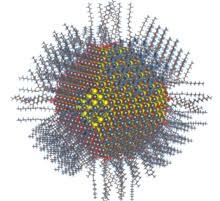An injection of nanoparticles may boost the immune system when it becomes weak. Inflammation is a double-edged sword. When it works, it helps the body heal and fights off infections. But sometimes, the immune system overreacts. An acute lung injury, sustained by inhaling smoke, for instance, can lead to runaway fluid production that essentially drowns a person.
Experiments in mice suggest that simple plastic nanoparticles, delivered by IV, may be able to keep a type of immune cell called a neutrophil too busy to cause inflammation. Other diseases in which neutrophils cause excessive inflammation include sepsis and the hardening of the arteries, or atherosclerosis.
Researchers designed an experiment injuring part of the blood vessel wall in the microfluidic chips and confirmed that the neutrophils were redirecting their attention from creating inflammation at the injury site to carting the foreign particles away. In mice with acute lung injury, they found that injecting nanoparticles by IV could reduce the number of neutrophils congregating at the injury site by half or more.
The neutrophil concentration was similar to the concentration found in the blood of uninjured mice. Instead, the neutrophils were taking the particles to the liver, where they could be removed from circulation. The chemicals that the team uses to attach the nanoparticles to the blood vessel walls are the same as those used by the neutrophils themselves, a coating that combines nonfouling materials with the targeting chemicals will throw most white blood cells off.
haleplushearty.blogspot.com



